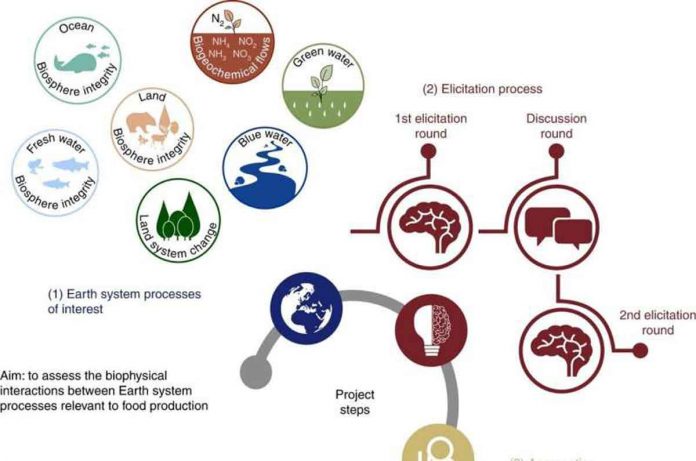According to new research, food production is already one of the most significant stressors on our planet, but it is made significantly more difficult by the interaction of Earth system processes.
The natural activities that keep the planet habitable and useful are referred to as Earth system processes. This includes processes that occur in the various biospheres, such as carbon sequestration in forests and nutrient runoff into freshwater systems.
Interactions between these processes test their boundaries and influence how well they work.
“Food production is a major source of environmental stress, affecting biodiversity loss, climate change, and overexploitation of marine resources,” said co-author Dr. Steven Lade of The Australian National University.
“We must begin producing food in a sustainable manner. We can ensure that the interaction of Earth system processes is taken into account when designing and implementing food production and agriculture policy by assessing their interaction.”
The study, led by Finland’s Aalto University, examined and characterised various Earth system processes, highlighting how they can be used to develop more sustainable food production techniques.
The study emphasized several critical interactions that are frequently overlooked, such as the effect of green water on food production and biodiversity.
“Green water is water stored in soil that is available for plant growth.” “It plays a critical role in interacting with and regulating all other processes such as land, biodiversity, and water flow,” Dr. Lade explained.
“Action will be required to ensure that we address these various interactions.” Better communication is required, which means that authorities in charge of areas such as agriculture policy and marine policy must communicate with one another.
“When it comes to managing sustainable food production, we must take a holistic approach in order to avoid straining the boundaries of our natural systems. We must consider more than just water and land as inputs for food production.”
According to the researchers, the difficulties stem from the high density of interactions between the ocean, freshwater, and land biospheres.
“Recognizing these interactions and boundaries is necessary for the Earth’s system to remain stable and resilient. Human pressures may have already pushed the Earth system beyond the safe operating space for humanity in some cases “Dr. Lade stated
“System interactions make long-term food production more difficult. However, because everything is interconnected, taking positive actions can have far-reaching consequences.”
The research was published in Nature Sustainability.

